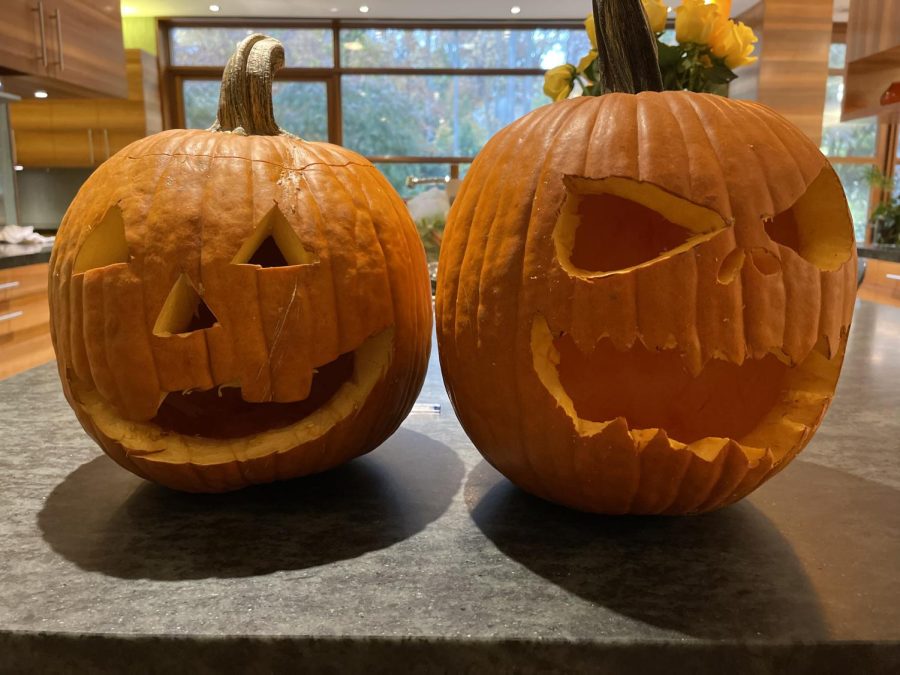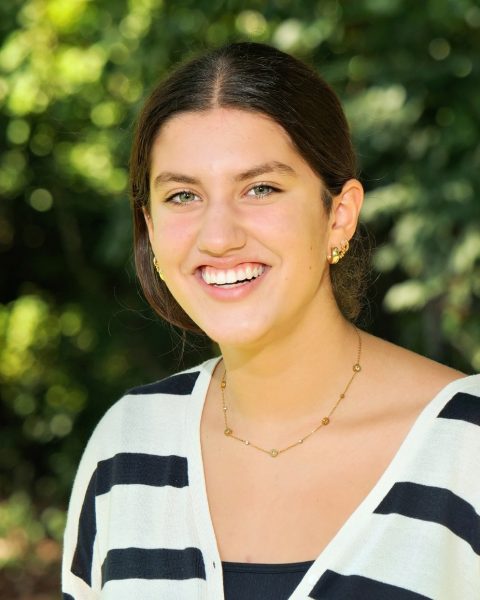Why is Halloween taboo in many Jewish communities?
While Halloween is taboo for many communties, many students celebrate outside of school.
October 31, 2022
On Oct. 31st, kids of all ages will dress up in costumes and look forward to a school day full of candy, costume contests and spooky surprises. While the orange and black lights, jack o’ lantern decorations and pumpkin carvings will be decorating schools and houses around Montgomery County, the hallways of CESJDS will remain.
Within Jewish communities, Halloween is somewhat of a taboo subject. Oftentimes, more observant Jews consider Halloween to be a pagan holiday, and therefore it should not be celebrated. However, recently, Halloween has come to be seen as more of a secular celebration.
In an email sent to the JDS community by Head of School Rabbi Mitchel Malkus, there was an outline of school policies toward Halloween.
“CESJDS does not celebrate Halloween; we do not post decorations, wear costumes, discuss experiences or distribute treats in school,” Malkus wrote in the email. “ Additionally, we do not actively encourage the observance of Halloween by our students outside of school.”
In addition, Malkus wrote that the holiday is associated with magic and sorcery, which some perceive to be biblical violations. Also, Halloween is not celebrated because of its pagan origins and anti-semetic events that occurred in history on the holiday.
High School Jewish Life Chair Robbie Shorr said that he is aware of the opinion that Halloween is not a “non-Jewish holiday,” however, he said that because it is not a specifically Jewish holiday, there is no need to observe it in school.
In addition, Shorr said that Halloween has become a sensitive time of year because of anti-semitism that has come up in the past.
“It has also been a time of antisemitism in the past or a lot of pogroms around that time of year,” Shorr said. “So, I think it’s just most important to make sure everyone is comfortable.”
Shorr added that if students would like to gain a better understanding of the reasoning behind not celebrating Halloween, he is always open to having long conversations about his personal values and practices.
Additionally, there is disagreement among students in regard to celebrating Halloween.
Sophomore Adam Bachrach has celebrated Halloween at home ever since he can remember. He sees Halloween as a fun time for friends to get together and express themselves creatively. In Bachrach’s opinion, Halloween should have the same standard as any other day of the year.
“At any other time of the year people can come dressed as things as long as it’s obviously school-appropriate,” Bachrach said. “So, I don’t see why Halloween is an exception…it has no religious context.”
On the other hand, as someone who has grown up in a very observant community, sophomore Elisheva Babitz was never allowed to celebrate Halloween and thinks the same rules should apply to JDS.
“For me it was always seen as a Christian holiday…Just as I don’t celebrate Christmas, I also don’t celebrate Halloween,” Babitz said.
Although there are many conflicting opinions, Babitz said that maintaining her connection to faith and being comfortable is the most important thing to remember while making the choice to celebrate Halloween.
“Sometimes I feel like I’m missing out on experiences, but I know that I’m doing it to connect with my roots,” Babitz said.








